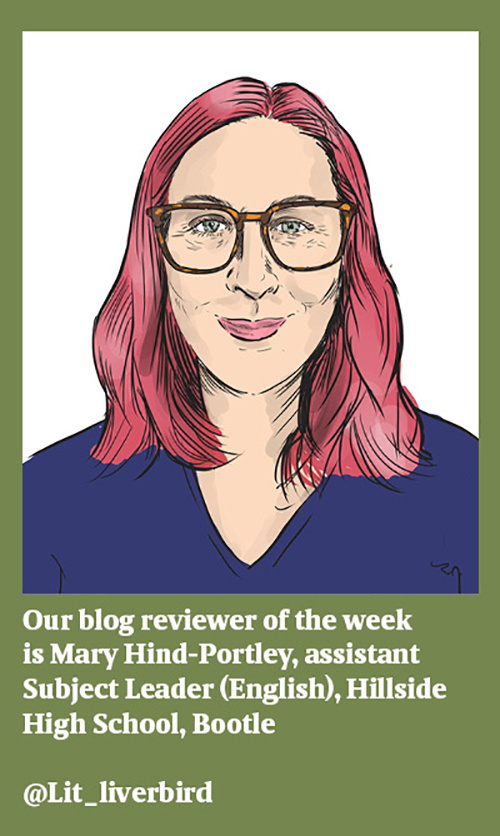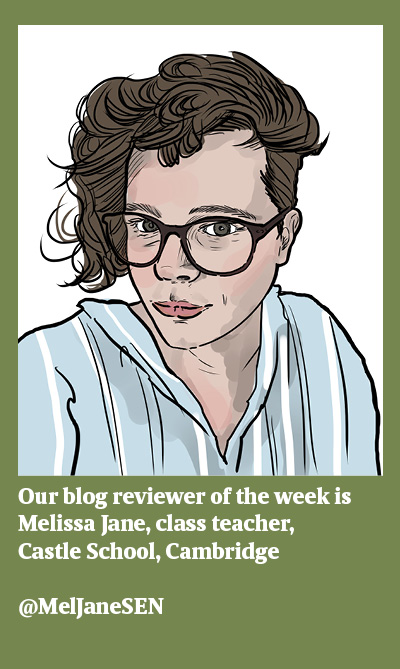
The school Should Be Podcast
@zaharachowdhur2
This podcast series for educators is run by educator Zahara Chowdhury and has an excellent breadth of discussion with a broad range of guests. It covers topics from wellbeing to finance, through to prejudice and the school system.
Each podcast episode is between 40 mins to an hour long and aims to give students, teachers and professionals a voice to discuss what they think schools should be for all who work and learn in them, as well as for their families and communities. It’s definitely worth a listen if you work in education and want to stay connected to enquiry around what schools should be.

Welcoming Refugee Children
Silvana Richardson via @BellFoundation
This post is actually the first of three (with a related webinar) in which Silvana Richardson summarises some important thinking about supporting refugees in UK schools. Richardson summarises training from Refugee Education UK’s chief executive Catherine Gladwell and outlines some of the key issues staff should be aware of in relation to prior educational experiences and the key challenges refugees face in joining a school in the UK.
An awareness of these issues seems vital for all teachers at this moment in time, and the blog is packed with useful links for further ideas and resources, not least the next two blogs in the series which offer a number of practical and policy suggestions. If you share the aim to “ensure a smooth induction period for these learners and their families”, this is a great place to start.

Talking Our School Into Existence
@MrNickHart
I reviewed this wonderful blog by Nick Hart earlier this year and it’s been transformative for me as a governor and trustee. The post focuses on how important it is to have the ‘right conversations’ with leaders and with school staff, and following Hart’s advice has had immediate effect. I’ve received feedback from staff that these right conversations have positively impacted them and even changed some minds about leaving the education sector.
For me, the most impactful aspect was its reframing of professional conversations in such a way that putting a human touch at the heart of changing school culture makes a positive difference to individuals without compromising expectations.

Towards a more affirmatory conception of SEND
@bennewmark and @TomRees_77
My blog of the year is a compelling, intelligent and compassionate piece in which Ben Newmark and Tom Rees delve under the skin of inclusion, and the systems and structures we have created around meritocracy in particular. Both draw upon personal as well as professional experiences to argue that the ingrained deficit approach we have developed leads to a majority being found wanting and posit that we are entitled to better – “a more ambitious and fuller articulation of what a good life is”.
The counter-narrative they present is one that looks to breadth and depth of provision and expectations, moves away from measurement towards value and avoids playing the “meritocratic game”. I have read it many times already and find my thoughts and my heart drawn back to it daily.

Teaching in a Small School
@joannapple
Blogs, at their best, offer a kind of magic. One click, and you’re transported into a world that you may otherwise never encounter. And Jo Luxford’s blog on teaching in a small, rural school is a world that we should all pay more attention to.
Too often, when education policy is being cooked up, it’s large schools in urban centres that are front of mind. Small schools like Luxford’s are an afterthought ̶ if they’re given any thought at all. So, with the clarity and insight that comes only from years of hard-earned experience, she sets out the unique challenges and the joys of “embracing the idiosyncratic beauty of village school life while remembering that we are not a living history exhibition”.
This is a blog that reminds us of the many worlds of education in England, and brings me a sense of relief and gratitude that people like Luxford are leading them.

Need Not Diagnosis
@RoseUnwin
Published this week, this is a very late entry for blog of the year – but it should be required reading for all.
At times, Unwin’s account horrified me, but it is also, I think, a hopeful piece that addresses how we see and how we should see people with learning disabilities. Discussing various contradictions, such as the fact that labelling a learning disability doesn’t guarantee a good life, Unwin argues that it’s more important to provide support according to need than diagnosis. He also questions the ideas of ‘normality’ and meritocracy and would like us to have an honest discussion around learning disabilities. As Unwin says, “We have to do better”. Blogs like this can only make that more likely.

On Cultural Capital
@stoneman_claire
As the cost of living soars and ministers sneer at a working-class MP for loving opera, my ‘blog of the year’ is ever resonant. In this response to a Guardian article stating that museum visits had no impact on GCSE results, Claire Stoneman shows us the error of such a reductive view of cultural capital.
She does this through a lyrical, evocative and celebratory description of her ‘culture’-infused childhood, with parents who found ways to enrich her life using her home town’s free delights. The result is a challenge to us all: Can we provide a rich diet of cultural experiences for those children who don’t have the opportunities we had? It’s also all the inspiration we need to lift cultural capital from “the fog of fads and tick lists and school improvement”.

Dear Will Quince, Welcome to SEND…
@TaniaLT for @SpcialNdsJungle
This school year started and ends with a reshuffle. Nadhim Zahawi, who became education secretary just ten months ago, ascends to the Treasury, to be replaced by Michelle Donelan. Meanwhile, Will Quince has resigned, leaving the SEND brief and the review he has been championing in another no-man’s land.
As a result, Special Needs Jungle’s Tania Tirraoro may need to write another letter. But then, come to think of it, the ten priorities she set out for Quince then remain just as relevant now. And a school year book-ended by ministerial musical chairs only serves to underline her point about “ambitious politicians [who] rock up and think they’re going to make a splash”.
So here we go again with the splashing. And in the meantime, as Tirraoro says, “there’s no money for life-jackets”.












Your thoughts